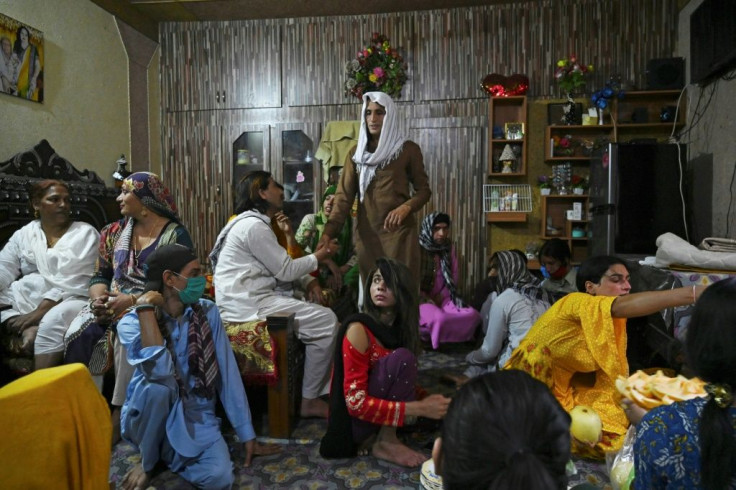Ex-Pakistan Minister's Son Sentenced To Death For Shooting 3 Transgenders

KEY POINTS
- A man in Pakistan, Ahmed Bilal Cheema, was sentenced to death Tuesday
- Cheema, the son of an ex-provincial minister, killed three transgender people in 2008
- His family allegedly offered blood money to the victims' relatives, but it was turned down
The son of a former provincial head in Pakistan who killed three transgender people 15 years ago has been sentenced to death.
A district and sessions court in Sialkot, Punjab handed down Ahmed Bilal Cheema's sentence Tuesday, the Deccan Herald reported.
Cheema, the son of former Punjab Minister Ajmal Cheema, fatally shot three transgender people - Mazhar Hussain, Aamir Shahzad and Abdul Jabbar - at his outhouse in Sialkot back in 2008.
He opened fire on the victims after they refused some of his friends' demands during a dance party, police said.
In addition to sentencing Ahmed to death, Judge Jazila Aslam also ordered the payment of 500,000 rupees ($2,210) to each of the victims' relatives as compensation.
Ahmed faces another six months in prison should he fail to provide compensation.
Authorities were able to arrest Ahmed, who fled to the United States, upon his return to Pakistan in July.
His family offered blood money to the relatives of the victims, but the relatives turned the offer down, according to police.
Pakistan, a nation known for religious conservatism, enacted a law prohibiting discrimination against transgender people in schools, workplaces and public settings four years ago.
Despite this, the number of attacks against transgender people in the country continues to rise.
At least 53 transgender persons were killed in Pakistan between 2018, when the country banned discrimination against transgender folk, and 2022, according to data collected by the European Union-funded Trans Murder Monitoring project.
In March of this year alone, four transgender people were killed, and others were injured in a series of attacks in the country's northwest, the New York Times reported.
Enforcement of Pakistan's anti-discrimination law has been inconsistent in the country's provinces, which are responsible for local implementation of federal policies across fields like health, education, security and family law, according to the outlet.
While Pakistan's 2018 law "was a great step forward," progress "just can't stop there," according to Maria Sjödin, the executive director of OutRight Action International, a nonprofit that addresses human rights violations and abuses against lesbian, gay, bisexual, transgender and intersex people.
"We welcome the passage of the laws to protect the transgender community's rights, but changing the society's mindset is a big challenge. A certain section of people considers transgender persons either their property or as less than human," Bindiya Rana, a transgender community leader in the city of Karachi, said.

© Copyright IBTimes 2024. All rights reserved.




















